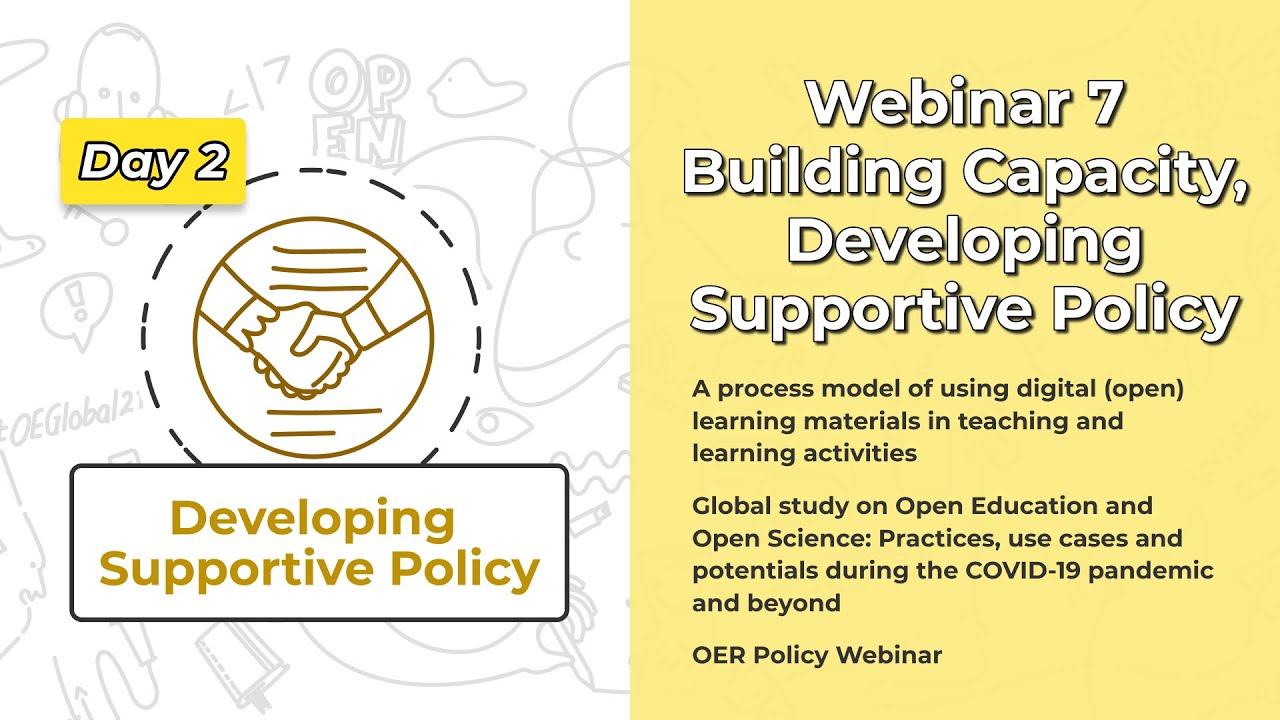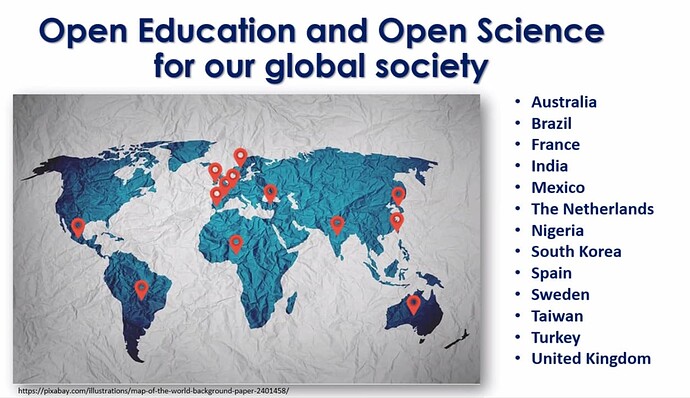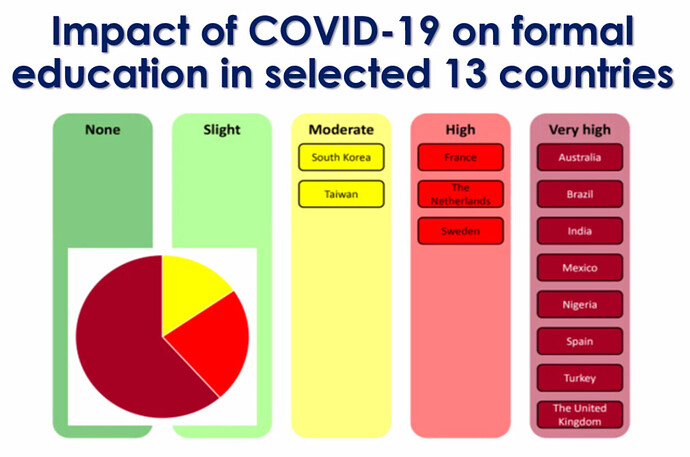Christian M. Stracke (Open University of the Netherlands), Daniel Burgos (Universidad Internacional de La Rioja (UNIR)), Ramesh Chander Sharma (Ambedkar University Delhi), Cécile Swiatek (Université Paris Nanterre), Aras Bozkurt (Anadolu University), Grainne Conole (Independent Consultant), Ebba Ossiannilsson (Swedish Association for Distance Education), Jon Mason (Charles Darwin University), Chrissi Nerantzi (Manchester Metropolitan University), Jane-Frances Obiageli Agbu (National Open University of Nigeria), María Soledad Ramírez Montoya (Tecnológico de Monterrey), Jin Gon Shon (Korean National Open University), Andreia Inamorato dos Santos (Joint Research Center European Commission), Robert Farrow (The Open University), Marian Wan (Taipei Medical University), Gema Santos-Hermosa (Universitat de Barcelona), Özlem Karakaya (Iowa State University), Vi Truong (Monash University), Cécile Swiatek (Université Paris Nanterre)
This paper provides an overview of the status of Open Education and Open Science for our global society in the first year of the COVID-19 pandemic: It presents practices and uses cases from 12 countries and global regions on the challenges for formal education during the COVID-19 outbreak. A special focus is led on the potential solutions and examples of Open Education and Open Science in these regional use cases. Their analysis and comparison present insights about the developed strategies and implemented practices in the different regions worldwide. And their discussion offers opportunities and recommendations how Open Education and Open Science can innovate and improve formal education in schools, universities and lifelong learning during the ongoing COVID-19 pandemic as well as afterwards.
Responding to the impact of COVID-19 on formal education, this paper profiles global perspectives of Open Education and Open Science through highlighting practices and use-cases from several countries and regions on the challenges and opportunities arising. By drawing on examples of extant practice, insights into effective strategies are presented as recommendations for how Open Education and Open Science can innovate and improve formal education in schools, universities and lifelong learning into the future.
Our responses to emerging challenges in education is of vital importance to sustaining its ideals and philosophy. With the emergence of COVID 19, one is tempted to either stay reserved for a variety of reasons or be inspired to embrace the ‘new normal’ COVID-19 has shaken all societies and the whole globe. As a consequence, as noted by a recent OECD report (OECD, 2020), the educational systems in all countries were affected and witnessed disruptions and partial lockdowns.
Our key interest is how potential solutions and examples of Open Education and Open Science have been introduced and used in different regions worldwide. Through the analysis and comparison of the regional use cases, we want to explore the developed strategies and implemented practices and how much they were built on Open Education and Open Science. We report on the first year of the pandemic until 11th of March 2021, the (sad) anniversary of the declaration of COVID-19 as pandemic by the WHO (2020).
The collected practices and use cases are following four guiding questions as basis:
Two general questions:
1. How was formal education affected by the COVID-19 outbreak?
2. What were the strategies and implemented solutions?
Two specific questions on Open Education and Open Science:
3. How much have Open Education and Open Science been proposed and addressed and what is the difference between original intentions and current real impact?
4. Which good practices, lessons learned and recommendations exist and how can Open Education and Open Science contribute in the future?
These guiding questions were formulated broadly so that they can easily be adapted for the regional reports to reflect the diversity of situations in relation to learning traditions, theories, support, practices as well as to given conditions and contexts such as educational systems, curricula, assessments, institutions, resources, infrastructures and laws.
Extended abstract: OE_Global_2021_paper_99_v2.pdf 📄
Webinar Information
This presentation is part of Webinar 07 Building capacity, Developing supportive policy taking place in your local time → .
Webinar Access (registered conference participants only):
![]()
![]() Go to Webinar 07
Go to Webinar 07
UNESCO OER Action Area: Building capacity, Developing supportive policy
Language: EnglishSee the other presentations that take place in this webinar.
Presentation Recording
Participate
Before the webinar the authors will be asked to reply below with links to their presentation materials, related videos, and other relevant links, as well as prompts for discussion here.
For anyone that missed the live session, an archive will be posted here as soon as possible.
Conference participants are urged also to reply below with questions, comments for the presenters or to share related resources.

 who will be your designated speaker (or speakers)?
who will be your designated speaker (or speakers)?


